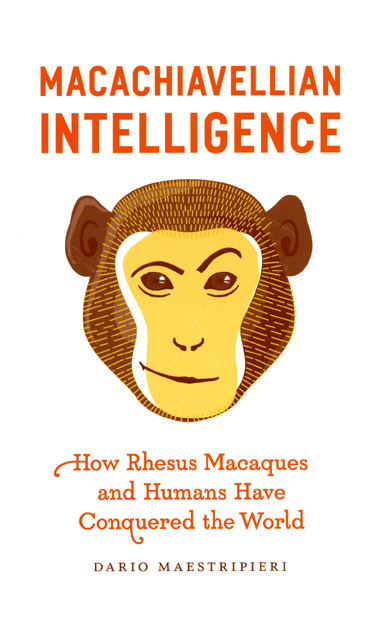Review: Maestripieri, Macachiavellian Intelligence

The Times Higher Education Supplement recently ran a positive review of Dario Maestripieri’s new book, Macachiavellian Intelligence: How Rhesus Macaques and Humans Have Conquered the World. A detailed examination of how rhesus macaques have come to claim the title of the world’s most prolific primates (after homo-sapiens, of course) Macachiavellian Intelligence delivers an insightful exploration of macaque social organization—revealing relationships perpetually subject to the cruel laws of the markets and power struggles that would impress Machiavelli himself.
Alison Jolly’s review for the THES begins:
If this review were written by a rhesus monkey, the author would get an O mouth threat and a clear chance of being bitten. Unless, of course, the author were dominant to the reviewer, in which case it would be a sycophantic fear grin in hopes of payoff—either promotion or sex. The only actual altruists in rhesus society are mothers, but The Times Higher doesn’t ask authors’ mothers to review books.…
The review continues:
Maestripieri tells [his] story with incisive prose, sharp wit and admirable brevity, and the book should appeal to a wide audience from cynical teenagers to economists who believe that the “invisible hand” of competition underlies all human society. He also has perfect timing. The idea that our human brains evolved largely to deal with the demands of society is very much in fashion.…
Rhesus range from India to China, through Himalayan snows, tropical swamps, temples, bazaars and railway stations. Humans, of course, range everywhere. The sweeter-natured primates… have more restricted ranges than nastier ones. Does this mean that there is a correlation between aggression and success in the world? Maestripieri thinks so. He compares rhesus society to the army—organized to conquer people and occupy lands.
N.B. See the press’s translations of Machiavelli’s works including Art of War and The Prince.